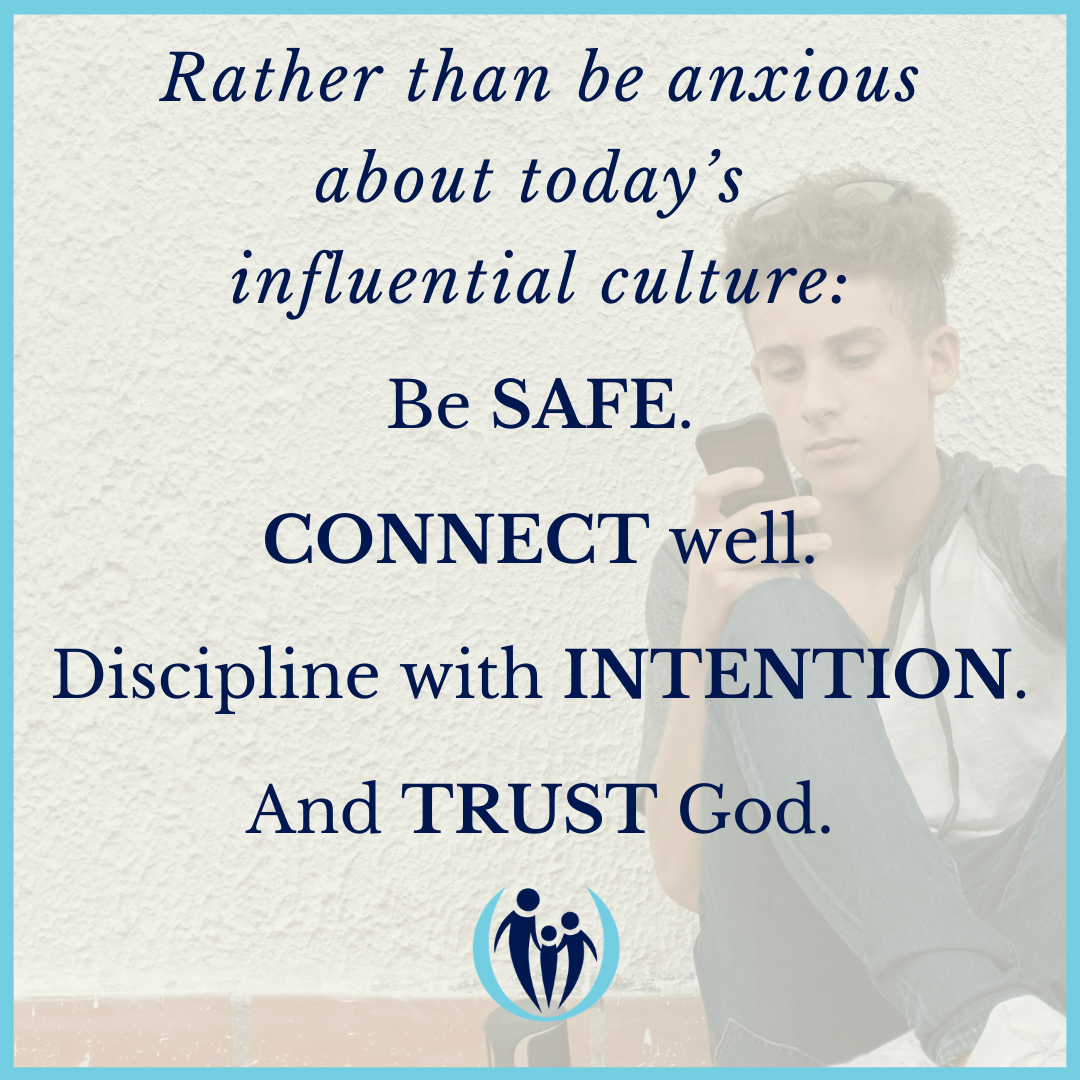
Why How YOU Were Parented Probably Won’t Work Anymore
 Have you ever thought something like this?
Have you ever thought something like this?
- My parents were tough on me and I turned out okay.
- My folks didn’t tolerate any lip from me.
- I knew I was “gonna get it” from Dad if I sassed off to Mom!
Or maybe on the flip side of the coin:
- My parents pretty much left me alone and I turned out okay.
- My folks really weren’t engaged. They were too busy.
- I had a lot of freedom but I kind of figured it out as I went along.
Are any of these phrases on the tip of your tongue? This may be an indicator that you had a set of rules imprinted on you when you were young that may be influencing the way you parent today. If you’ve said to yourself, “I wanna be different than my parents were” but find yourself sounding just like Mom or Dad anyway, OR if you justify doing things the way your parents did because, “I turned out okay,” we wrote this for you.
Whichever camp you’re in, it’s important to know that kids’ lives are far more affected by forces outside our homes than even one generation ago. The following statistics and ideas may not be news to you, but it’s still helpful to be reminded of some of the factors that make parenting more challenging today than it has been in the past.
- Life keeps moving faster.
- Parents report having only about thirty minutes per day of free time.
- In 5 Ways Kids Spend Time Differently Today Than in the Past authors noted less sleep, less overall free time, less time outdoors, more screen time, and more homework.
- Kids are bombarded by negative media influences.
- From the mid 1990’s to 2015 screentime has more than doubled.
- Violence in media is increasing. “By 18 years of age, the average young person will have viewed an estimated 200,000 acts of violence on television alone….”
- Anxiety and depression in children has skyrocketed.
- Scores on a standardized personality test show that 5-8 times as many high school and college students meet the criteria for a diagnosis of major depression and/or anxiety disorder compared to half a century or more ago.
- Anxiety is increasing. “…the average kid today is more anxious than people who were hospitalized for anxiety in the 1950’s.”
- Peers have a powerful influence in your home and are available constantly.
- Social media started in 2004 in the form of MySpace. Now, in developed nations, almost all young people use some form of social media.
- 58% of teens with smartphones cite texting as the main way they communicate with their closest friend.
Summary: Kids’ are more stressed than ever.

The stress-relieving activities of outdoor play, daily family meals, and a good night’s sleep for everyone, are no longer typical. Parents and kids are running ragged, with few opportunities for relaxed, connected, wisdom-building conversations. Parents tell us they have little time to consider important values and how to communicate them. The influence of media quickly fills the “values void” with excessive violence and sexuality.
Frequent standardized testing and highly competitive athletics add increasing pressure on kids to perform. Due to a complexity of causes, children are experiencing more symptoms of anxiety and depression than ever before. All these factors can stress the parent-child relationship, and complicate efforts to discipline them when necessary.
Kids often seek quick outlets for their resentment by looking to their peers or even Google to get a listening ear. And things between parents get quickly worse when kids zip off quick text messages to get sympathy from a BFF complaining, “My Dad (or Mom) is such an idiot!!” Crazily, while in one sense the world is more connected than ever, in the relational sense we are actually more disconnected relationally.
When parents make a decision to try to be more relationally connected, they tend to raise kids who are more resilient to the many pressures of growing up in 2020.
What does it take to be more intentional?
- Self-Examination. Are you intentional about staying grounded and confident in who you are? Do you take time to think, pray, and/or write in a journal about yourself and experiences? We’ve found that those parents who make a practice of looking inward are more grounded, confident, and able to wisely face the pressures of raising kids in today’s culture. Here’s our parenting assessment to get you started.
- Start a conversation with your family by picking one of the statements or linked articles above. (Some of the articles might make a good read for a dinner conversation or family meeting.) Then, give your family a grade about that topic by naming what you do well to connect as a family and what you’d like to do together to improve the grade. When parents make a decision to try to be more relationally connected, they tend to raise kids who are more resilient to the many pressures of growing up in 2020.
- Check out our Discipline That Connects With Your Child’s Heart online course. In the course you’ll learn ways to stay connected to your kids – even when they misbehave and require correction. You could be the parent of a teen who bragged to his friends how calm you were when he had a major screw up!
What are your parenting strengths?
You’ve got them. Knowing your strengths will help you become the best parent you can be. Knowing your parenting challenges is useful information too. Take our FREE ASSESSMENT.







